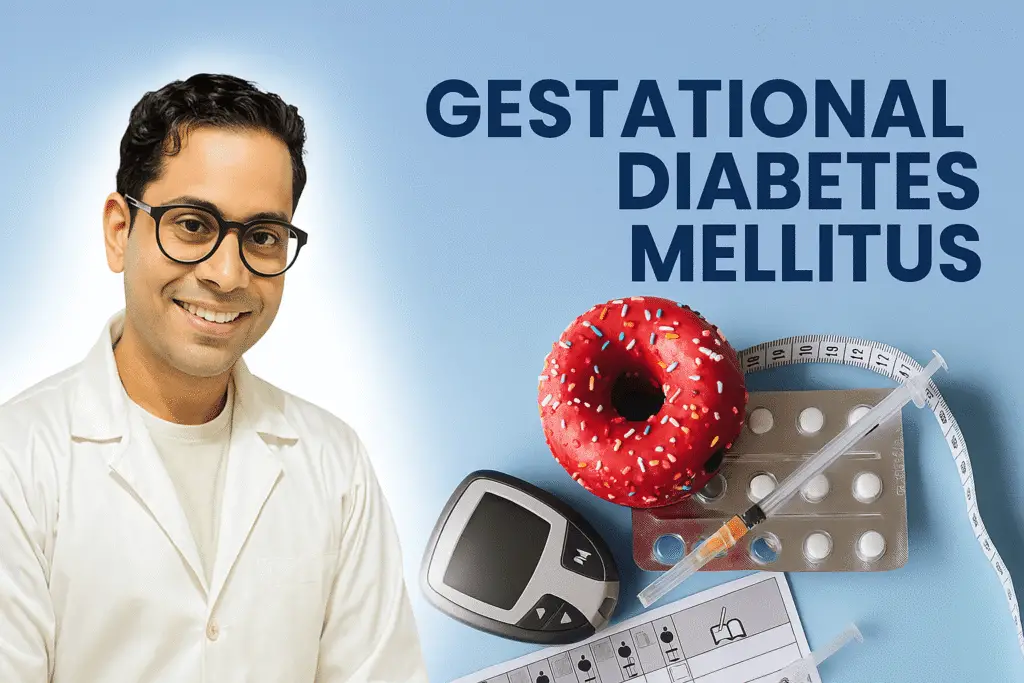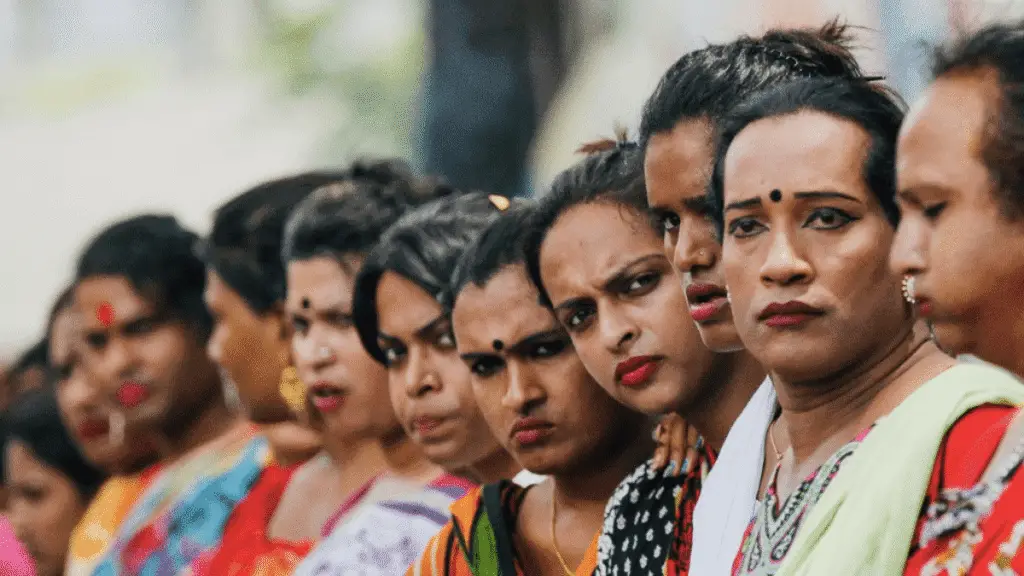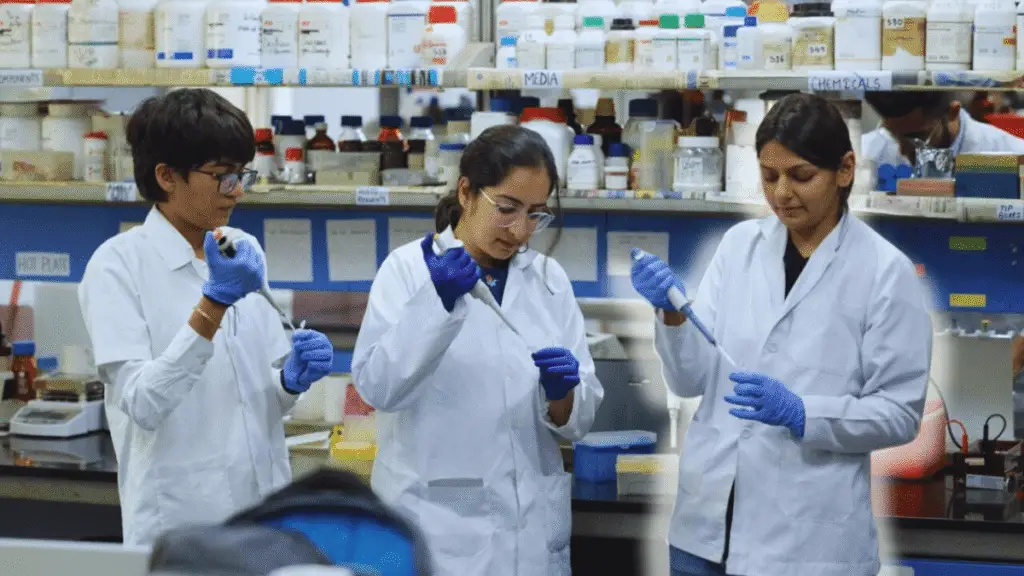It’s hard to describe the happiness a woman feels when she hears these words for the very first time, “you’re pregnant.” She begins to dream about her baby – how the little one will look, how she will care for and love her and all the beautiful moments they will share together.
But for some, this happiness turns into a nightmare when diagnosed with gestational diabetes. It isn’t a type I or II, but a new version that only appears during pregnancy and stays lifelong.
Gestational diabetes is common among pregnant women. When a woman is diagnosed with glucose intolerance, approximately 6 to 16% pregnant Indian women end up into a condition, scientifically known as Gestational Diabetes Mellitus- GDM.
Lifestyle, diet, and genetics are some common reasons that cause this condition in women. However, among all the factors, genetics is the predominant factor reported in GDM.
One young Indian scientist is currently working on unfolding the genetics behind GDM and this is his story.
Key Topics:
Meet the scientist:
Rakesh Kumar Gupta is currently pursuing a prestigious doctoral degree in female reproductive genetics at the Department of Molecular and Clinical Genetics, Institute of Science, Banaras Hindu University, Varanasi.
He has published 11 peer-reviewed research papers in various national and international journals, as per the Google Scholar data. The most interesting part is, he has done extensive research in the field of female reproductive genetics, particularly on gestational diabetes mellitus.
He is interested in working on female reproductive genetics, endocrinology and reproductive biology. His research work also showed that he has extensive expertise on techniques like PCR, DNA sequencing and gene expression analysis.
His current research work is groundbreaking:
His recent research work, published in BMC journal – Diabetology & Metabolic Syndrome, and entitled “Genetic association of vitamin D receptor polymorphisms (Apal, Bsml and Folk) with gestational diabetes mellitus in North Indian Women,” revealed important information on GDM.
This research revealed that the Vitamin D level is directly linked to the glucose and glycated hemoglobin (HbA1c) level in pregnant women from North India. And hence, mutations in the VDR- vitamin D receptor gene lead to GDM during pregnancy.
This occurs due to insufficient vitamin D intake during the gestational period.
Three different techniques helped them during the research:
During the present research, Rakesh Kumar Gupta and team used ARMS-PCR, a specialized modification of the PCR technique, Sanger sequencing and ELISA to investigate the condition in 200 pregnant women.
Note: If you are a life science student and want to learn these techniques, I have provided links. Click the links to learn more.
Notably, this study is a case-control one. Meaning, 100 patients were diagnosed with GDM, while the other 100 were controls.
Collectively, these three techniques investigated the VDR gene, gene sequence, mutations and gene expression of the variants.
Studied three different VDR mutations potentially linked with GDM:
Gestational Diabetes Mellitus affects not only the mother but also the fetus. It increases the risk of severe congenital conditions, including cardiovascular disorders, neonatal hypoglycemia and even premature birth.
Rakesh Kumar Gupta and team studied the candidate VDR gene to investigate whether the vitamin D level can be directly linked to GDM or not. The study identified two VDR gene variants- ApaI and Folk1.
This groundbreaking research concluded that vitamin deficiency produces a specific VDR gene variant, either ApaI or Folk1, that results in GDM during pregnancy.
Related story: This AIIMS Scholar is Investigating the Mother-Fetus Microbiome Link.
Future aspect:
Pregnancy is a crucial and critical phase of a woman’s life. Every woman dreams of having a healthy baby, but not everyone is that fortunate. Researchers like Rakesh Kumar Gupta are making that dream possible for many.
Such challenging topics require years of experience, constant motivation and hard work to find meaningful conclusions.
The present research is a small step towards a safer pregnancy. Such research will help manage pregnancy safely and even develop personalized treatment and supplement options for pregnant women.
This is our small effort to celebrate such an important, impactful and revolutionary research work. We are thankful to Rakesh Kumar Gupta for contributing to science and society.
Resources:
Gupta, R.K., Tiwari, S., Agarwal, S. et al. Genetic association of vitamin D receptor polymorphisms (ApaI, BsmI, and FokI) with gestational diabetes mellitus in North Indian women: a case–control study. Diabetol Metab Syndr 17, 257 (2025). https://doi.org/10.1186/s13098-025-01827-0.
Disclaimer: The information presented in this article is based on publicly available online sources and, when possible, direct communication with the scientist. While every effort has been made to ensure accuracy, Genetic Education does not take responsibility for any errors, misinterpretations, or outdated details. All scientific information is referenced from peer-reviewed research and credible academic publications.


